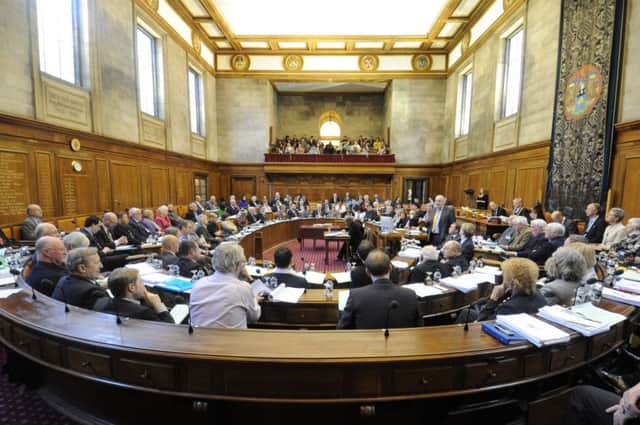James Price: Why should taxpayers subsidise unions?


Such tales occasionally make for (not so) amusing reading: a Bradford councillor who received £50,000 in allowances but didn’t pay their own council tax, the head of West Yorkshire Police who was paid £600,000 for 16 months work, or Kirklees Council employing eight diversity officers, costing £370,790 in 2012.
Council tax payers are less likely, however, to be aware that some of their hard-earned cash is subsidising trade unions through a practice known as facility time – paid time off to perform union duties. Taxpayers expect the people whose salaries they pay to do the job they’re paid for, not to work for voluntary membership organisations. Research by the TaxPayers’ Alliance has exposed the scale of this subsidy: some £110m a year.
Advertisement
Hide AdAdvertisement
Hide AdWhy should trade unions, which are voluntary organisations, receive so much taxpayer funding, especially at a time when other services are being cut and taxes raised?
Public sector employees enjoy higher pay, more generous pensions and more holiday than their private sector counterparts. Despite all this, six times as many days are lost to industrial action in the public sector than in the private sector after adjusting for the size of the workforces. So claims that facility time benefits taxpayers from the likes of the Trade Unions Congress simply don’t stack up.
Trade unions try to argue that the costs are worth it for a ‘happy workforce’ but taxpayers should be anything but happy at the idea they are subsidising union representatives.
So what does this cost Yorkshire taxpayers? Our research shows that at least £14.6m is spent on facility time across the UK, with more than £2.2m coming from Yorkshire local authorities. The local authority which spent the most is Leeds City Council, where facility time cost taxpayer £502,095, closely followed by Kirklees, with £482,562.
Advertisement
Hide AdAdvertisement
Hide AdOur research also shows that there are more 65 local authority employees who spend at least 50 per cent of their working time engaged not in the job they are paid for, but in trade union duties. I will leave it up to readers to question whether they would like the taxpayer to pay for them to spend half of their working time promoting and helping a voluntary organisation with which they agree.
There is a further problem with facility time; there is not enough transparency in how much is costs or how it is regulated. We could not find nearly one third of local authorities’ data on the subject, with statistics from others hard to find or out-of-date. It is likely the case that our total figure significantly downplays the real costs.
The TPA received a legal opinion on facility time from barrister Francis Hoar. He said: “It appears that many public sector employers have not approached union ‘facility’ time in the manner envisaged by industrial relations law. Rather than arbitrating over individual requests for time off (as the law envisages), many have delegated those responsibilities to full time union officials.”
Legislation introduced last year forces all public sector employers to publish data on their facility time costs, bringing them into line with the expectations placed on the civil service and councils. The very act of collecting facility time information should focus minds on ensuring it is reduced.
Advertisement
Hide AdAdvertisement
Hide AdThis has been borne out in the civil service, where spending on facility time has dropped by more than 70 per cent since reforms were introduced.
Employers have a legal responsibility to ensure that their employees receive adequate representation by their trade union.
This is why it was reasonable for certain elements of the Trade Union Act to be dropped, such as the requirement to force members on picket lines to reveal personal data to the police.
However, what was designed as a system for helping negotiations, and relations more generally, between employers and employees has become something very different.
Advertisement
Hide AdAdvertisement
Hide AdIt is time for trade union representatives working in local authorities to realise that they are responsible not just to the members of their trade unions, but to those who pay for them in the first place – the British taxpayer.
James Price is a policy analyst at the TaxPayers’ Alliance.